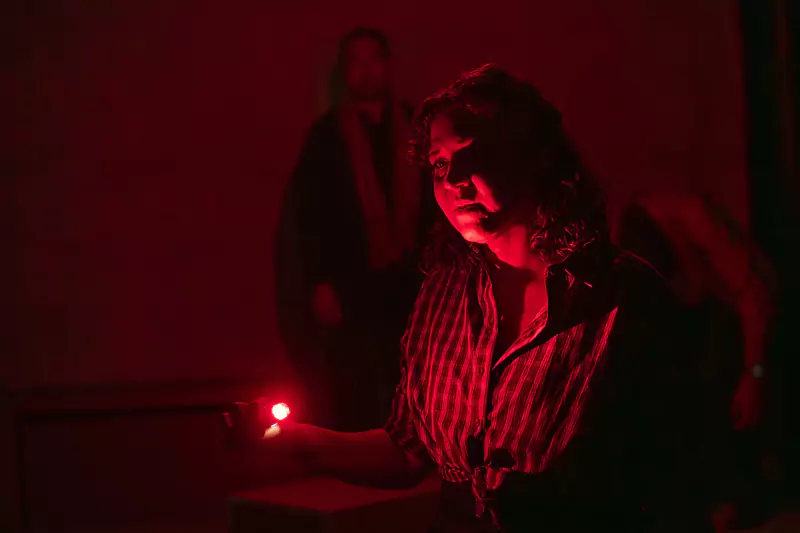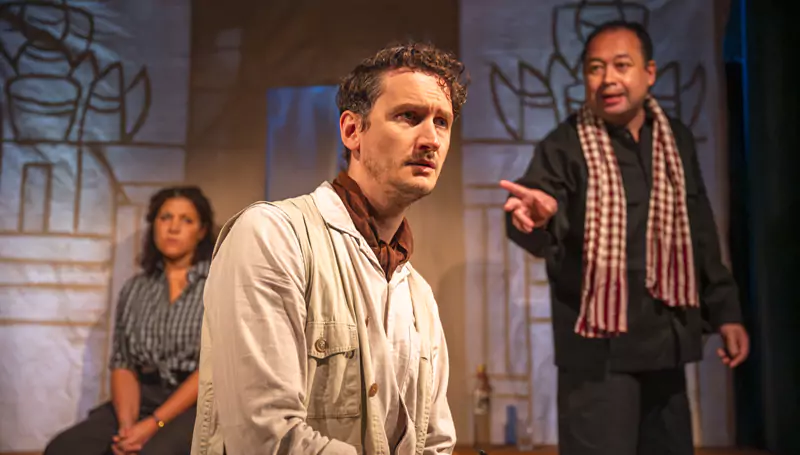“Our Brother”, Òran Mór
Mark Brown in Glasgow
12 September 2025
On 23 December 1978 the Scottish academic and prominent left-wing activist Malcolm Caldwell was killed by gunfire in Phnom Penh, capital of Cambodia. His murder came a matter of hours after he had met the country’s infamous genocidal leader Pol Pot.

Nicole Cooper.
Photo credit: Tommy Ga-Ken Wan.
A self-proclaimed Marxist and sometime national chair of the Campaign for Nuclear Disarmament (1968-70), Caldwell was a leading academic in the School of Oriental and African Studies at the University of London. He was also, at the time of his death, the world’s pre-eminent apologist for the catastrophic efforts of the Cambodian Communist Party (aka the Khmer Rouge) to return their country to “Year Zero”.
The nature of Caldwell’s meeting with Pol Pot (or “Brother Number One”, as he was known in the Khmer Rouge’s Orwellian parlance) has been the subject of conjecture for 47 years. Likewise his killing, which has been explained, variously, as: an execution ordered by Pol Pot himself; the work of a rogue Khmer Rouge guard; and an assassination by commandos of the Vietnamese Army (which invaded Cambodia two days after Caldwell’s demise).
The conjecture over Caldwell’s fatal visit to Cambodia now takes fascinating, dramatic form in Our Brother, a short play by Jack MacGregor. Written for Glasgow’s famous lunchtime theatre A Play, a Pie and a Pint (and transferring to the Traverse Theatre, Edinburgh next week), the piece imagines the meeting between the Scotsman (named simply ‘Stranger’) and Pol Pot (‘Brother’).
The audience is connected to this invented conversation by way of a character known only as the ‘American’ (a fictionalization of Elizabeth Becker, who was one of two US journalists who were invited to Cambodia along with Caldwell).
Played on a small thrust stage in the basement theatre of the Òran Mór venue, director Andrea Ling’s production has a claustrophobic intensity that is entirely appropriate to its subject. David Lee-Jones plays Brother with a compelling combination of charisma, humour and terrifying, ruthless certainty.
Bobby Bradley’s Stranger captures perfectly his character’s complex mixture of intelligence, zealotry and willing utopian naivety. For her part, Nicole Cooper is unerring as the American, a role that not only helps to contextualize events, but also to remind us that there are many possible versions of the meeting between Caldwell and Pol Pot, all of them necessarily fictional.
Lee-Jones is never more sinister than when – like a Mafioso in a Martin Scorsese film – he makes a deadly threat, only to dismiss it, laughingly, as a joke. MacGregor and Ling have imagined for Caldwell moments – not only of confusion, fear and remorse – but also of the “euphoria” that Becker recalls in the Scotsman as he emerged from his encounter with Pol Pot.
The American makes closely considered, meta-theatrical interventions. Occasionally she stops the action, questioning the account in the scene we have just witnessed, and demanding the actors go back and present the dialogue differently.
This is a smart device, even if the actors’ miming of a literal rewinding of their speech and movement is naff and clichéd. But that is a small blemish, however, in what is an excellently acted, enthralling hour of politico-historical and psychological theatre. Our Brother testifies impressively to the capacity of A Play, a Pie and a Pint to present theatre that goes beyond a mere light diversion at lunchtime.
At Traverse Theatre, Edinburgh, September 16-20: https://www.traverse.co.uk/









